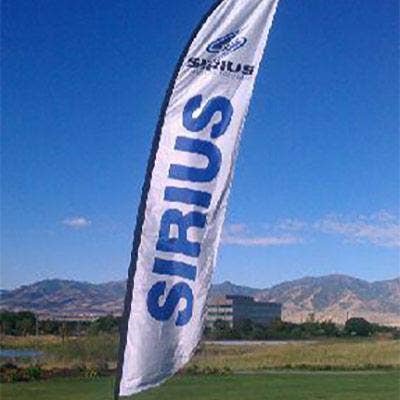10 Things You Need to Know About The Colossal Sirius-Forsythe Deal

The New Integrator On The Block
Systems integration giants Sirius Computer Solutions and Forsythe Technology have agreed to team up, creating a 3,000-employee, $3.26 billion behemoth with deep expertise and resources around security, cloud and managed services.
"We're in a very competitive industry that's very dynamic," Forsythe CEO Bill Brennan said in an audio recording for company employees. "As it continues to change, it's our belief that joining forces with Sirius allows us to achieve some scale, size and financial strength that will make us a more powerful entity in this industry without compromising our corporate values."
The two solution providers will come together Oct. 31 with a multitude of large vendor relationships, more than $500 million of annual security revenue, and nearly 2,000 technical and sales resources. Here are 10 things the channel should know about this industry-altering transaction based on materials compiled by company management.

10. End Users Will Be Able To Tap Into 1,900 Technical and Sales Resources
The combined Sirius-Forsythe organization will have 1,500 technical experts supporting the expanded solution portfolio and 400 dedicated and certified sales reps across the U.S.
Sirius was founded in 1980, and has more than 2,000 employees holding 4,000 professional and technical certifications. The company has more than 5,000 active clients in the U.S., and is projected to have sales of $2.28 billion in 2017.
Forsythe was founded in 1971, and carried out roughly 10,000 transactions in 2016 with its 895 employees. The company serves its more than 1,000 clients with 400 industry-leading vendor partnerships, and is projected to have sales of $1.2 billion in 2017.

9. Forsythe's Stock Price At Closing Is Expected To Be Much Higher Than Its 2016 Valuation
Forsythe's stock price following the Oct. 31 closing is expected to be significantly higher than its $90.30 valuation as of Dec. 31, 2016.
The price at which the transaction takes place on Oct. 31 is an estimated transaction price, with the final price to be determined 90 days later. Funds will be held away and put into an escrow account to cover any amounts that Sirius may have overpaid for the company.
Conversely, Sirius will be obligated to pay additional funds if it is determined that it didn't pay enough on Oct. 31. In the time since Forsythe employees purchased the company from founder Rick Forsythe in March 2006, the company's share price has skyrocketed by 345.3 percent from $20.28 to $90.30.

8. Forsythe Knows Its Place When It Comes To Data Center Migrations
Forsythe's IT strategy business provides services to 40 of the Fortune 500 around migrating and transforming their ecosystems into secure hybrid cloud infrastructure. The company has built an agile suite of integrated repository and workflow management tools to support enterprise-scale projects.
Over the past half-decade, Forsythe has assessed 750 data center, relocated 150 and closed 20 others. More than 1.5 million workloads have been assessed by Forsythe, with 800,000 being migrated and 700,000 being rationalized for cloud placement.
Forsythe has experience managing through more than 100 declared disasters and recoveries. The solution provider enjoys 10 percent data center penetration into its total client base, with 15 customers purchasing more than $1 million in data center services over the past five years.

7. The Two Companies Aren't Weighted Too Heavily In Any One Vertical
The joint organization is very well-balanced from a vertical perspective, with three sectors – professional services, finance and health care – each accounting for between 14 percent and 16 percent of 2016 gross profit.
The next three largest industries – insurance, federal government and manufacturing – each contributed between 8 percent and 11 percent of gross revenue in 2016. Retail and SLED (state, local and education), meanwhile, each provided 6 percent of last year's gross profit.
Sirius was more heavily concentrated in the health-care, federal government, and SLED spaces, while Forsythe placed a greater emphasis on the professional services vertical. Both organization were equally weighted when it came to finance.

6. Sirius Has Been Heavily Focused On Helping Businesses Do Better Business
Sirius has more than 400 dedicated and certified business and software experts across its U.S. and offshore teams.
Earlier this year, the company launched a digital marketing agency focused on digital strategy, design, experience, branding and marketing for its clients. Sirius has more than 100 customer engagement implementations, and is IBM's largest software partner globally.
The company's business and software skills range from custom app development, data and analytics and DevOps to enterprise content management, the Internet of Things and mobile enterprise. Sirius' business clients include BlueCross BlueShield, Calvin Klein, Mattel, Michael's, Microsoft, Speedo, T-Mobile and Tommy Hilfiger.

5. Client Overlap Between The Two Organizations Is Minimal
Although Sirius and Forsythe have roughly 6,000 combined active clients, less than 18 percent – or 1,080 – of those end users are shared by both organizations. This creates meaningful cross-sell opportunities for the combined organization.
The combined company's top clients accounted for 2.5 percent of gross profit in the 2016 fiscal year, while the next four clients provided 6.8 percent of 2016 gross profit. The sixth through 10th clients, meanwhile, comprised 4.7 percent of 2016 gross profit.
Therefore, the joint organization drew 86 percent of its 2016 gross profit from end customers outside the top 10.

4. The Companies Have 200 Dedicated Managed Services Staff Supporting Some 300 Clients
Sirius and Forsythe's combined managed services capabilities provide end users with comprehensive, around-the-clock support, economies of scale and operational efficiencies.
The two organizations support 300 managed services clients with more than 200 dedicated managed services technical staff holding 3,000 active certifications across server, storage, network and software technologies. These efforts are spearheaded out of command centers located in Chicago; Toronto; Omaha, Neb.; Raleigh, N.C.; and Chennai, India.
The team is able to streamline control of maintenance, subscription and training contracts using an around-the-clock online portal with real-time contract details. All told, the managed services practice addresses issues pertaining to applications, infrastructure, operations and support.

3. Job Reductions Are Expected In Certain Support Roles Where Redundancies Exist
Although Sirius wishes to retain the best people, practices and tools from Forsythe, job reductions are expected in certain core support roles where there are redundancies. Any U.S.-based Forsythe employees whose jobs are eliminated will receive two weeks of base severance pay plus between one and two weeks of additional severance pay for each year they were with the company.
Forsythe's reporting structures are not expected to change substantially through the end of 2017, with leadership from both organizations working collaboratively to best align businesses and talent beyond that. Job titles for Forsythe employees are not expected to materially change, although some might be modified to align more appropriately as the two teams are integrated.

2. Security Sales Have Grown By 71 Percent For The Joint Company Over The Past Three Years
The two companies have focused enormous growth in their security practices in recent years, with combined revenue catapulting 71.1 percent from $297.6 million in the year ending June 30, 2014, to $509.3 million in the year ending June 30, 2017. Forsythe accounts for more than three-quarters of the combined security revenue in the most recent 12 months.
The joint organization will have more than 100 dedicated security experts holding 350 combined technical and industry certifications. Sirius is IBM's top identity access management partner, and won Security Partner of the Year honors from Big Blue in 2016.
The combined company offers around-the-clock managed security services through its Security Operations Center (SOC), and also offers proprietary software for threat and vulnerability assessments.

1. The Combined Company Will Do More than $95M Of Business With Five Separate Vendors
The combined Sirius-Forsythe will spread its business more equally across a multitude of vendors, with no one supplier accounting for more than 23 percent of overall sales.
In the 12 months ending June 30, 2017, the two companies did $96.8 million of business with NetApp, for which Sirius was their 2017 Partner of the Year in the Americas Central Region. Palo Alto Networks accounted for $104.5 million of business, for which Forsythe was recognized as Partner of the Year.
Dell EMC takes the bronze medal with $302.5 million of sales, with Forsythe being recognized as a Partner of the Year on six occasions and Sirius being recognized as a Partner of the Year on two occasions. Cisco took the silver with $731.8 million of revenue, with Forsythe winning Partner of the Year recognition on eight occasions and Sirius earning similar honors on six occasions.
IBM edged out Cisco for the gold with $746.5 million of sales, of which $431.7 million came from hardware and $314.8 million came from software. Sirius won IBM's Beacon Laureate Award for overall technical excellence from 2012 to 2016.